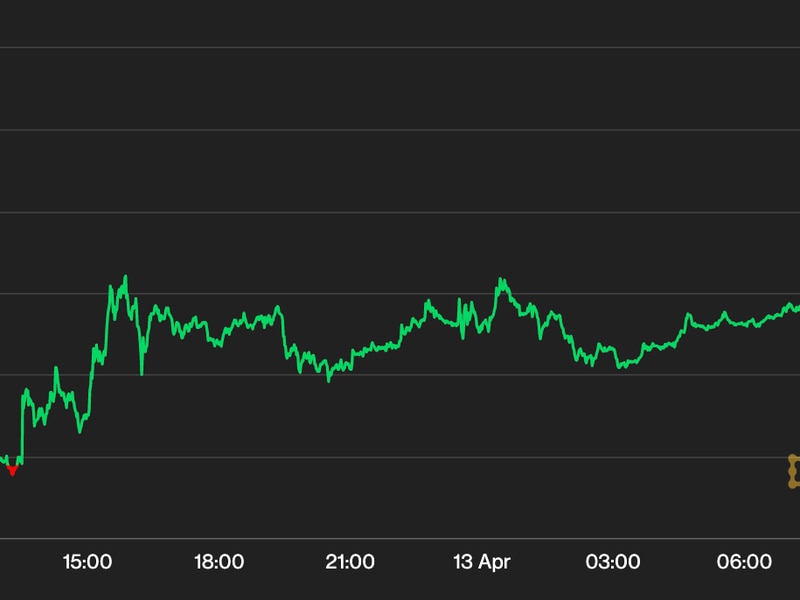Texas Senate Passes Bill to Limit Bitcoin Miners’ Participation in Demand Response Programs
Join the most important conversation in crypto and Web3 taking place in Austin, Texas, April 26-28.
:format(jpg)/www.coindesk.com/resizer/r4hCNh4zR8o4AxiOYIgV0l2Wigc=/arc-photo-coindesk/arc2-prod/public/QPY362MKDVA77CB4EHZRXW2KZM.jpeg)
Eliza Gkritsi is CoinDesk’s crypto mining reporter based in Asia.
Join the most important conversation in crypto and Web3 taking place in Austin, Texas, April 26-28.
The Texas Senate passed a bill that will cap how much bitcoin (BTC) miners can participate in demand response programs, under which they get paid to curtail their operations at times of high energy demand.
Bill SB 1751 passed the Senate with only one vote against and is now heading to the House. If approved, it will have to be signed into law by Texas Governor Greg Abbott.
The bill aims to limit bitcoin miners participating in demand response programs – under which they get paid in credits to turn off their operations when the power grid sees a surge of demand – to 10% and abolish tax abatements for the industry.
The House vote is expected to be more contentious, in part because bitcoin miners have cranked up their advocacy against the bill. Three lobbying groups including the Texas Blockchain Council, the Chamber of Digital Commerce, and Satoshi Action Fund launched a campaign against the bill on Monday, which they say is “anticompetitive.”
Bill SB 1751 will likely fail in the House because “the opinions in the House are much more aligned with the positive aspects and the benefits of bitcoin mining,” said Fred Thiel, CEO of bitcoin mining firm Marathon Digital Holdings (MARA), which has some of its operations in Texas.
Industry members and supporters argue that miners’ flexibility in powering on and off is an asset to the Texas grid. Miners can fund energy generation capacity when there is little demand for power, and turn off when power is needed for the rest of the grid.
But to critics, such as Texas resident Jackie Sawicky, who has organized hundreds of local residents in a group called Concerned Citizens of Navarro County to campaign against Riot Platforms (RIOT) – one of the largest miners in the state – the program amounts to subsidizing miners for their operations.
Edited by Aoyon Ashraf.
DISCLOSURE
Please note that our
privacy policy,
terms of use,
cookies,
and
do not sell my personal information
has been updated
.
The leader in news and information on cryptocurrency, digital assets and the future of money, CoinDesk is a media outlet that strives for the highest journalistic standards and abides by a
strict set of editorial policies.
CoinDesk is an independent operating subsidiary of
Digital Currency Group,
which invests in
cryptocurrencies
and blockchain
startups.
As part of their compensation, certain CoinDesk employees, including editorial employees, may receive exposure to DCG equity in the form of
stock appreciation rights,
which vest over a multi-year period. CoinDesk journalists are not allowed to purchase stock outright in DCG
.
:format(jpg)/www.coindesk.com/resizer/r4hCNh4zR8o4AxiOYIgV0l2Wigc=/arc-photo-coindesk/arc2-prod/public/QPY362MKDVA77CB4EHZRXW2KZM.jpeg)
Eliza Gkritsi is CoinDesk’s crypto mining reporter based in Asia.
Learn more about Consensus 2023, CoinDesk’s longest-running and most influential event that brings together all sides of crypto, blockchain and Web3. Head to consensus.coindesk.com to register and buy your pass now.
:format(jpg)/www.coindesk.com/resizer/r4hCNh4zR8o4AxiOYIgV0l2Wigc=/arc-photo-coindesk/arc2-prod/public/QPY362MKDVA77CB4EHZRXW2KZM.jpeg)
Eliza Gkritsi is CoinDesk’s crypto mining reporter based in Asia.








